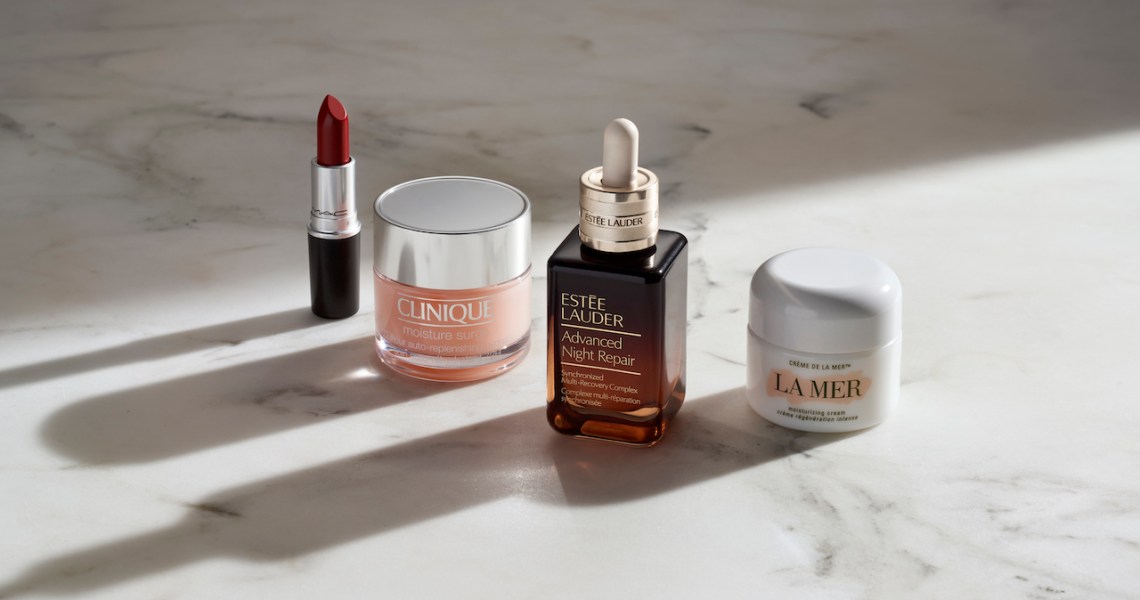The Estée Lauder Companies is making moves to solidify long-term innovation as a part of its executive leadership.
On July 20, the beauty conglomerate announced the promotion of Daniel Mahler to the newly created role of evp of global transformation and category leadership at The Estée Lauder Companies, which occurred July 1. Mahler, who joined The Estée Lauder Companies in 2020, helped create the “Transformation” model, a path for the company to invest in long-term goals while simultaneously focusing on current operations and growth. The overarching pillars of focus are fluid and change as necessary. Currently, the company is growing in the Chinese market, improving sustainability, increasing e-commerce penetration, reimagining brands’ creative assets, and evolving ELC’s approach to brand innovation and category portfolio management.
Mahler previously worked as an advisor and partner at the global consultancy firm Kearney. He joined the executive leadership committee and reports jointly to Fabrizio Freda, president and CEO, and Tracey T. Travis, evp and CFO. Mahler spoke with Glossy about the significance of his role for The Estée Lauder Companies, specific goals within his pillars of focus and Covid-19’s impact on global transformation.
This interview has been lightly edited and condensed for clarity.
What is The Estée Lauder Companies’ Transformation model?
“The Transformation model is a commitment for the company to always change, [whether] now or in two, three or 10 years, while still running the business and trying to deliver [profit] for the next quarter and fiscal year, et cetera. We have decided that there are six things that we need to get right now. They may be a different set of six things five years from now. [Some of] this includes making China our second home market, ensuring we continue to win online, and accelerating our efforts in the areas of sustainability and environmental, social and corporate governance.
My role is to help manage these groups of projects and ensure the executive sponsors, my peers, are on [target with reaching goals] while running the business. We have a group of 20 people internationally dispersed and helping to manage the projects and achieve their intended outcomes. Each time the executive committee convenes with Fabrizio [Freda], we reserve a portion of the agenda to talk about these things and make decisions that are super hard to make as a company… We are clear that this is an outcome-based transformation. We have hard numbers to reach, though I’m not at liberty to share them exactly.”

Daniel Mahler, evp of global transformation and category leadership at The Estée Lauder Companies.
Ad position: web_incontent_pos1
What are some specific examples the company is undertaking to achieve these goals?
“For example, we [decided we] need to build and manufacture in Asia, and we have committed to building a prestigious beauty manufacturing plant in Japan. It will be the largest manufacturing investment for the company. Second, we are going to create a second home for our innovation capability and build an innovation center in Shanghai to become the experts in Chinese skin. We also need to improve our work within the Chinese market to react faster to the latest trends [of China’s] sophisticated consumers. That will be an undertaking of 3-5 years. We are already two years in and have made tremendous progress.”
How has Covid-19 impacted this transformation?
“Covid-19 has shown the organization that these changed imperatives — China, e-commerce, the conscious consumer — only accelerated. If anything, my promotion reflects the need to have that muscle, so we can adapt faster to the realities that we face. We thought we had maybe 2-3 years to figure them out, but now it [has to] happen in 12 months. China’s attractiveness as a market has accelerated due to Covid-19, clearly. Online and the shift into the channel also have major implications for us, not just because [we are] selling more online, but [we are] also brand building online and embedding luxury [online], which is a challenge itself.”
What personally excites you about the global transformation division?
“Of all the topics, the rise of digital, in general, is a super interesting field. [We’re thinking about] all the facets of digital: ‘What does creative look like?’ ‘How do we invite people into a brand, when there’s no physical interaction with a beauty advisor?’ There’s also the possibility to use data to fuel our creativity. But I’m equally passionate about our push into sustainability.”




